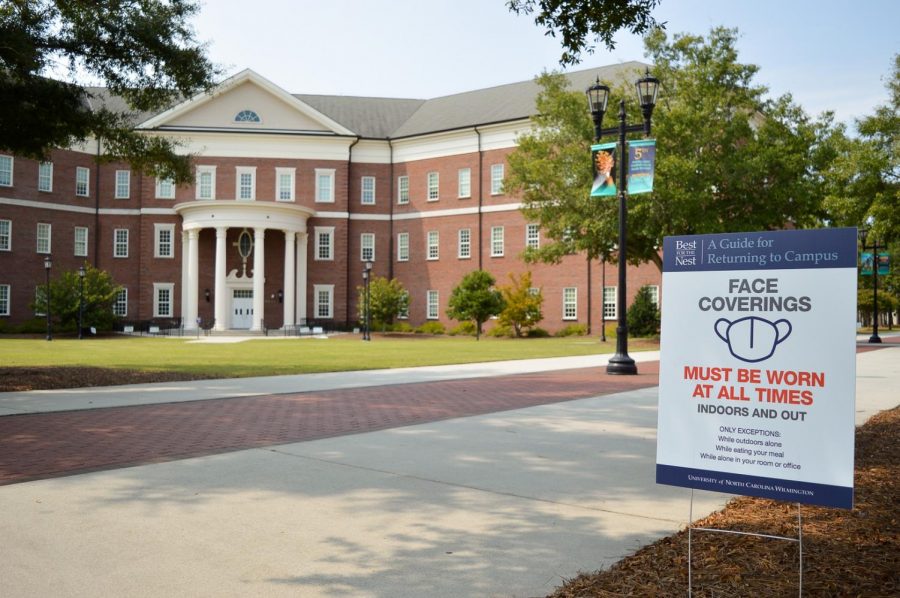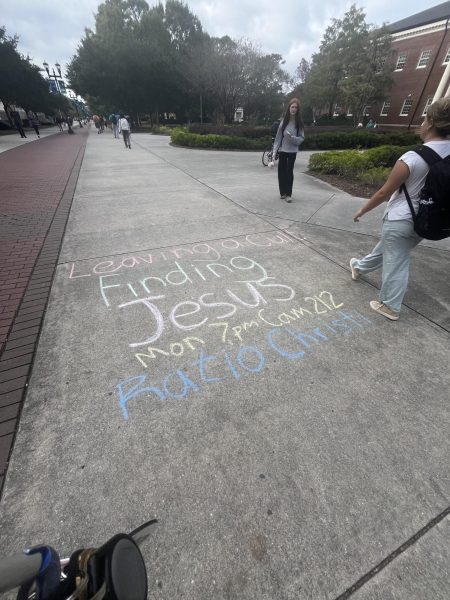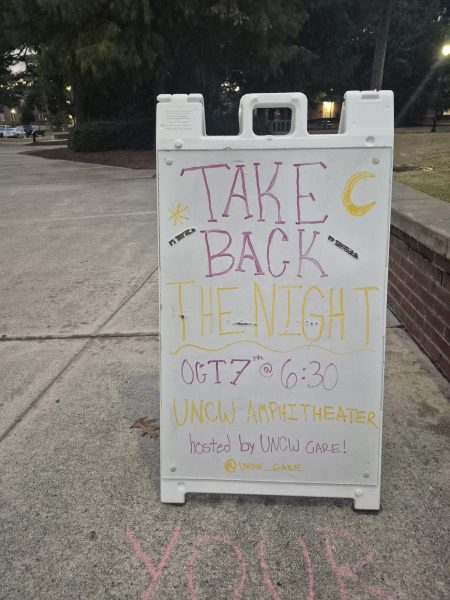OPINION: Online learning is impacting student experience
The COVID-19 pandemic has left quite an impact on the way that students learn across the country. In lieu of limiting the number of students on campus, colleges and universities have offered all or some of their courses in an online modality. This switch has caused conversations surrounding the cost of college to resurface. These concerns are defensible considering the economic hardship COVID-19 has created. It is becoming increasingly clear that the cost of college does not equate to what a student is receiving in educational value, especially when it comes to online formats.
UNCW is remaining open for in-person classes despite a majority of students having their classes taught virtually. The university released a statement to students addressing concerns regarding the spring semester, saying that it will look very similar to the fall semester in regard to the course format offerings. However, there appears to be a sharp increase in online course options, especially in my own department of public health studies. In the fall semester, there were few online options available to take as a distance-learning student. The spring semester will be much different, as most of the courses will be offered in an online format. Students who are already experiencing difficulty with their current online courses are wondering how they will be able to endure another semester of it.
Online classes have left me feeling as if I’m simply going through the motions of learning, rather than actually retaining the information. To be able to handle the flexibility of online learning, students need to be self-motivated, disciplined and organized. The number of hours we spend at home has only increased, and the distractions are endless. We are facing an extremely consequential election season, a global pandemic and the ongoing cries for racial justice in this country. There is a heavy emotional toll that comes with the effects of all of those events, yet we are expected to adapt quickly and keep moving. Universities have the largest amount of resources for online learning in comparison to elementary, middle and high schools, yet they were still unprepared for the fall 2020 semester. The large amount of planning for students to return to campuses overshadowed the ability of universities to plan successful and functional online courses.
“I think that the administrators put in thought for some online courses but not for others. I personally feel like they could have handled things much better by making a decision earlier on whether they were going all online or not,” says Madeline Miller, a UNCW sophomore. “If they made the decision earlier it could have given the teachers and students more time to prep for going online, which could have helped us have a more successful school year.”
Miller also goes on to discuss the implications of asynchronous courses. Asynchronous means that the class has no assigned meeting time, nor does the class meet as a whole over Zoom. This can be very difficult for students to develop a daily schedule, which can lead to the formation of bad habits such as procrastination. She stressed the importance of students needing time to connect with their fellow classmates and the professors, as COVID-19 has left many feeling isolated and lonely. Students are finding it difficult to be productive, and some feel that they are receiving more work than they would have gotten in a regular in-person course. This tends to be “busy-work,” which does little to supplement or reinforce online learning.
Even in classes that have online meeting times, many students have noticed professors teaching to “black screens,” alluding to the fact that students often refrain from turning on their cameras during class. Not only is this disheartening for professors, but it also leads to a lack of engagement in class. If students are asking professors and administrators to construct a better plan for the spring semester, it is only fair for the students to at least meet them halfway in their efforts.
Parents, who are also upset by the prospect of a mostly online spring semester, tend to blame the university and professors first. In my experience, professors do not cater to the student’s every need from the beginning. They simply provide them with resources and leave it up to the student to attend office hours and reach out if they need assistance. I believe that college students should have that level of self-accountability, but I also acknowledge that there are some professors who do not feel as if those efforts on their part are necessary. However, that is a very small population of faculty and I have not had that experience thus far. Freshman students especially tend to fall victim to that type of thinking, as they have just come out of high school and are not yet acclimated to college-level courses.
“I really think that synchronous classes are the way to go for next semester because it is really hard to stay motivated with classwork if you don’t have any other peers or your professors to talk to,” says Miller. “I think some professors have done a good job if the classes are asynchronous by making students do discussion posts and participate that way, but I think there is more that they can do to keep their students engaged in their classes.”
Students who have experienced online courses prior to the pandemic are having less difficulty in terms of time management, organization, and productivity. Despite having experienced a partly online spring semester, most students are still not well acclimated to the delivery of the courses. Organizational skills often take time to develop, and students are already under a tremendous level of stress to meet deadlines and expectations. However, students also have more flexibility in terms of scheduling. They now have more time for work or activities, given that they previously had to work around their tight class schedules. Time management will always be a necessary skill, and students can take advantage of this time to build upon those skills.
“Time management is the greatest way to tackle online classes,” says Kolby Edwards, also a UNCW sophomore. “Taking time to understand the schedule and how students need to pace their academics is the best way for students to tackle online classes.”
Edwards has had experience with online classes, as he has taken them for the last three years. He suggests that colleges examine how their students are handling their online courses rather than just shoving busy work in their direction. It seems as if there is a certain level of overcompensation for the lack of planning efforts, and the students are the ones paying the price.
With one full semester of online learning underway, universities now have a model to base the following semesters on. The cases of COVID-19 are only expected to rise in the coming winter months, and with a lack of rapid testing I do not foresee the spring semester being a success story. UNCW is already planning for this outcome, seeing that a large number of classes are already being offered in an online format. The administration is unfortunately continuing to mislead students by stating that the spring will be “very similar” to what the fall semester is like. They are not acknowledging that viral transmission will likely be higher due to the numbers of people who will be congregating indoors because of the colder weather. If UNCW is planning to have students remain on campus for the spring semester, it is essential that they increase levels of testing and conduct tests prior to student return. The administration has zero excuse for continuing to put students in harm’s way once again.












Marilyn Goldberg • Oct 12, 2020 at 2:39 pm
Excellent article by my talented granddaughter.
Hannah continues to amaze me with her writing skills.